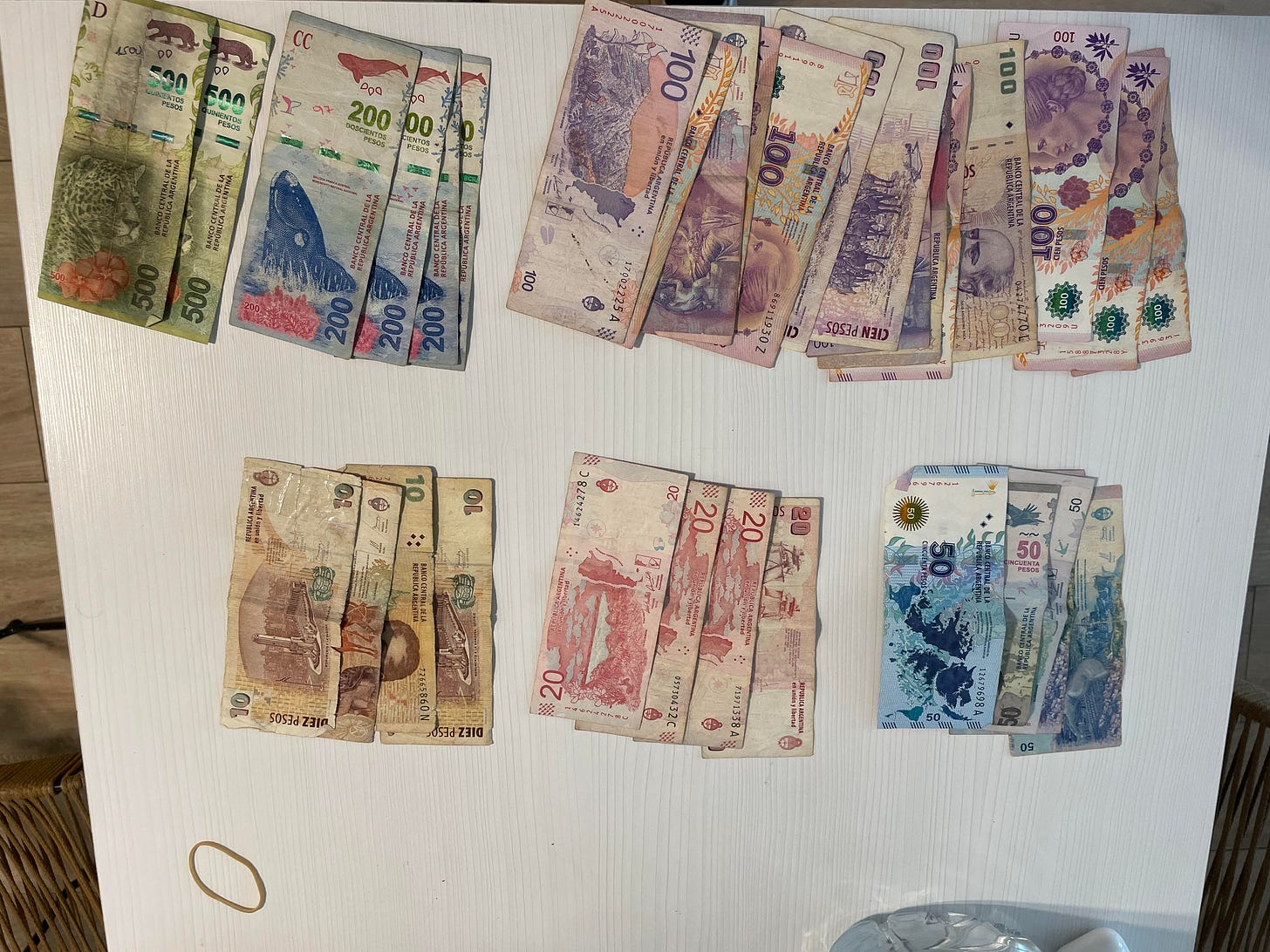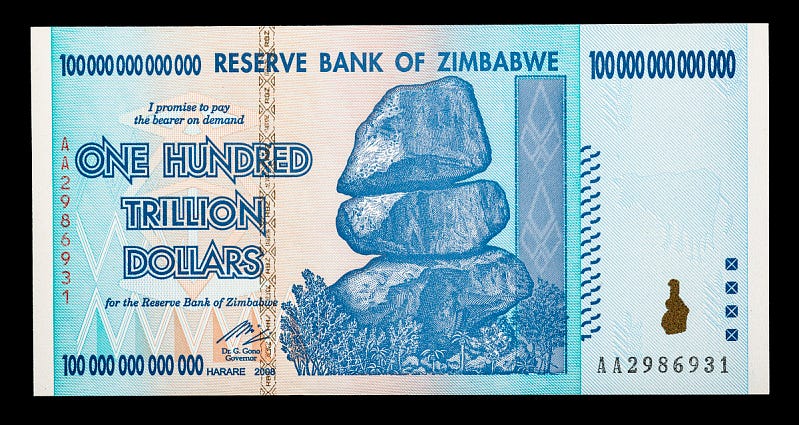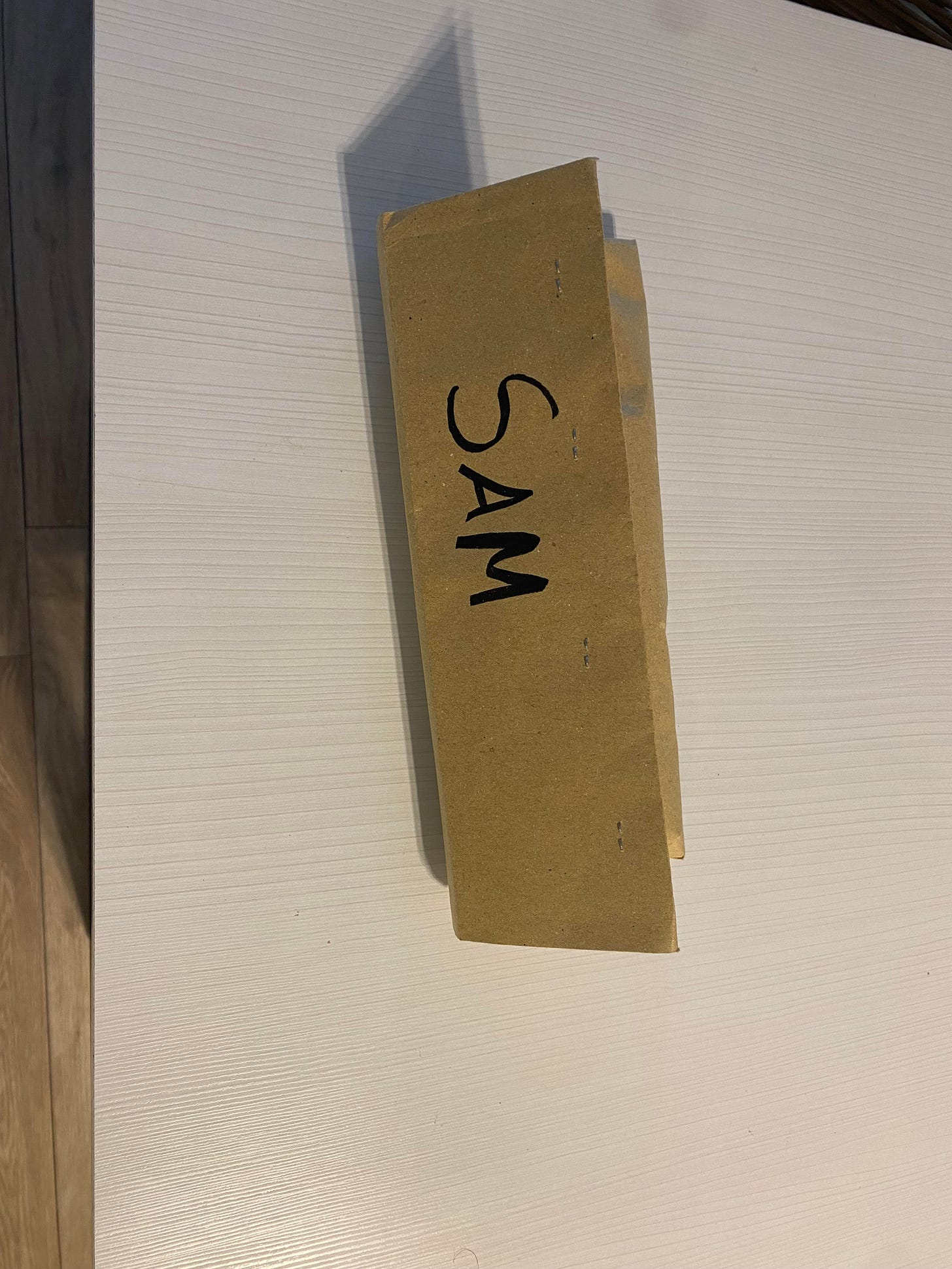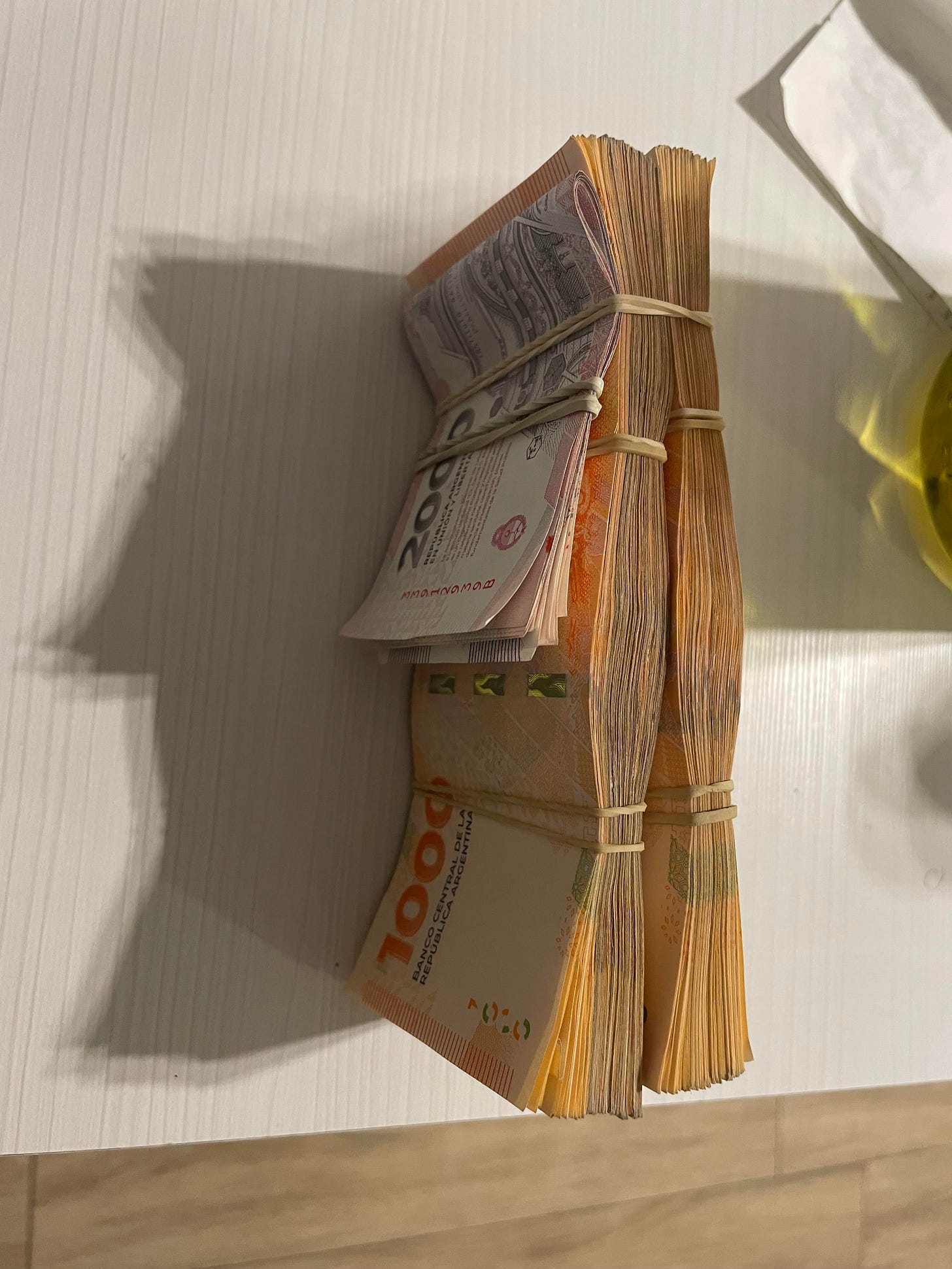Bienvenidos to The Sunday Succulent.
On Friday, I returned a one-hundred peso bill that a passerby had dropped.
Now, before you suggest I replace Mother Teresa in Sainthood, which might be a lower baseline than common knowledge would suggest, it’s worth mentioning that the one-hundred peso bill in question is roughly equivalent to a dime1.
It’s hard to fully grasp the country’s inflation crisis until you see it firsthand.
For example, look at the following picture and take a wild guess as to what it was used to purchase.
(Correct answer below.)
While Argentina isn’t quite Zimbabwe in 2008, still, every day’s a workout when you gotta carry around 50,000 pesos in your jeans. (IYKYK)
Due to this inflation and the Argentina government’s restrictions on foreign currency, there is a black market exchange rate for US dollars (USD) known as the blue dollar rate. This rate is considered closer to the actual market value of USD, which is preferred to the Argentine peso (ARS) as a safeguard against inflation.
At the time of this writing (it can fluctuate hourly), the blue dollar is 1,020/1 (USD 1 = ARS 1,020), and the official rate is 821/1. This means that, at the moment, you would have 20% more purchasing power with the blue dollar rate than the official exchange rate.
In other words, it would be fiscally irresponsible not to use the black market, blue dollar rate.
Quick sidenote: While writing this, a woman in her 70s or 80s walked by with a t-shirt that read, "Go climb a cactus." I hope you enjoy that as much as I did.There are a few ways to get the blue dollar rate, but the most common advice is this:
Go to Florida Street, find someone shouting “cambio,” follow them to their Casa de Cambio, and make the exchange. Apparently, this works surprisingly well.
Luckily, my Airbnb host’s nephew runs a Casa de Cambio and lives nearby, so he delivers to my apartment, saving me time and back alley dealings.
His name, Franco Ferrari.
There's not much to say about Franco Ferrari other than that I'd rather have no other person on Earth as my money changer. And if this all sounds sketchy, I can assure you that Mr. Ferrari's service and attention to detail would shame most modern retailers and restaurants.
The Sunday Succulent is like Switzerland regarding politics, but here’s to hoping Argentina’s new pro-Bitcoin president can turn things around.
Poll answer: chocolate milk2
New city, similar routine
While black market money exchanges are a first, the rest of my “arrival routine” remains pretty consistent.
Whether I’m staying somewhere for a week or three months, getting into a natural rhythm of life is crucial to productivity and general well-being. Below was my “arrival routine” in Buenos Aires (x2 due to the moves).
Pre-arrival
Book Airbnb3. The filters I use are:
Neighborhood (based on research)
Entire home
Price range
Guest favorites
Wifi (confirm directly with host)
Dedicated workspace (confirm in pictures)
Kitchen
Air conditioning (depending on location)
Additionally, I’ll read the reviews and do a Google street view of the area
Day one
Arrive at the apartment and check in with the Airbnb host
Unpack and put everything in its place
Setup workstation
Take a nap
Go to the grocery store or market and stock the fridge
Day two
Find a gym and workout
Find a Spanish school
Lock in my daily schedule
Walk around the neighborhood and take notes on places I want to go
Day five
Get a SIM card for my spare phone (in the future, I will do this on day one)
By week two
Have a few go-to regular establishments
Main takeaway: I try to get everything tedious out of the way in the first 12 hours and be in a consistent routine within the first 48 hours.
Bonus
Live look at me this weekend, sleeping in peace and quiet:
Have a great week, everyone!
Ciao,
Sam
At the time of writing, it would be eight cents at the official exchange rate and ten cents at the “Blue Dollar” rate.
Since the move, I have reinvigorated my love for peanut butter and honey toast washed down with chocolate milk.
Airbnb gets a lot of complaints these days, but until this trip I’ve had eight years of great experiences without a single issue. So, I have historically felt comfortable booking long term (one-month) stays prior to arrival. If I am staying somewhere longer than a month, I will negotiate directly with my host or find a local rental. My future strategy is unlikely to change based on one (ok, two) outlier experiences.






